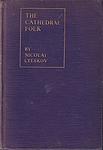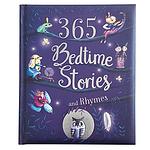Nikolai Leskov
Nikolai Leskov was a Russian novelist, short story writer, and journalist who lived during the 19th century. Born on February 16, 1831, in Gorokhovo, Russia, and passing away on March 5, 1895, Leskov is best known for his vivid characters and detailed depiction of Russian life. His works often reflect the complexities of Russian society, including its traditions, religion, and the clash between old and new values. Some of his notable works include 'The Lady Macbeth of Mtsensk', 'The Enchanted Wanderer', and 'Lefty'. Leskov's storytelling techniques and use of language have earned him a place among the greats of Russian literature.
Books
This list of books are ONLY the books that have been ranked on the lists that are aggregated on this site. This is not a comprehensive list of all books by this author.
-
1. The Enchanted Wanderer
"The Enchanted Wanderer" is a collection of short stories that follow the life of a Russian serf, Ivan Flyagin, who is destined to wander forever and never die. Throughout his travels, he experiences a myriad of adventures including becoming a monk, being captured by Tartars, and falling in love. The stories are filled with folkloric elements and offer a vivid depiction of 19th-century Russian society.
-
2. The Cathedral Folk
"The Cathedral Folk" is a novel set in 19th-century Russia, revolving around the lives of the people connected to the construction of a grand cathedral. The narrative delves into the intricacies of Russian society, exploring themes of faith, tradition, and the conflicts between progress and the preservation of the old ways. Through a rich tapestry of characters, including craftsmen, clergy, and local gentry, the book examines the human spirit and the complexities of moral choices in a time of social change, all while painting a vivid picture of Russian provincial life with its unique blend of piety, superstition, and the struggle for personal redemption.
-
3. The Tale Of Cross Eyed Lefty From Tula And The Steel Flea
The narrative is a whimsical Russian folk tale that recounts the story of a tiny, mechanical steel flea crafted by English craftsmen as a gift to the Tsar. The flea is an engineering marvel, able to dance to the Tsar's delight. However, Russian craftsmen are challenged to demonstrate their own skill by making something even more impressive. Lefty, a talented but cross-eyed craftsman from Tula, takes on the task and, with his exceptional craftsmanship, manages to outdo the English by fitting the flea with minuscule horseshoes, showcasing the ingenuity and pride of Russian artisans. The story blends humor, national pride, and a celebration of the underdog's triumph through skill and creativity.
-
4. Lady Macbeth Of Mtsensk
The novella centers on the life of a young, passionate Russian woman who is trapped in a stifling marriage to a cold and much older merchant. Seeking love and freedom, she embarks on a torrid affair with one of her husband's workers. As her desire for liberation grows, she is driven to commit a desperate and brutal act—murdering her husband. However, the guilt and consequences of her crime gradually unravel her sanity, leading to a tragic downfall that mirrors the Shakespearean character from which the title draws its inspiration. Set against the backdrop of rural 19th-century Russia, the story explores themes of passion, guilt, and the destructive power of human desires.
-
5. Tales
The book is a collection of short stories that delve into the lives, customs, and beliefs of 19th-century Russian society through a series of engaging and often satirical narratives. The stories are known for their colorful characters, ranging from the clever and resourceful to the foolish and superstitious, and they often contain moral or philosophical lessons. The author's use of language is notable for its inventiveness and the way it captures the diverse dialects and idioms of the Russian people. Through these tales, the author provides a rich tapestry of Russian culture, exploring themes of faith, tradition, and the human condition.




